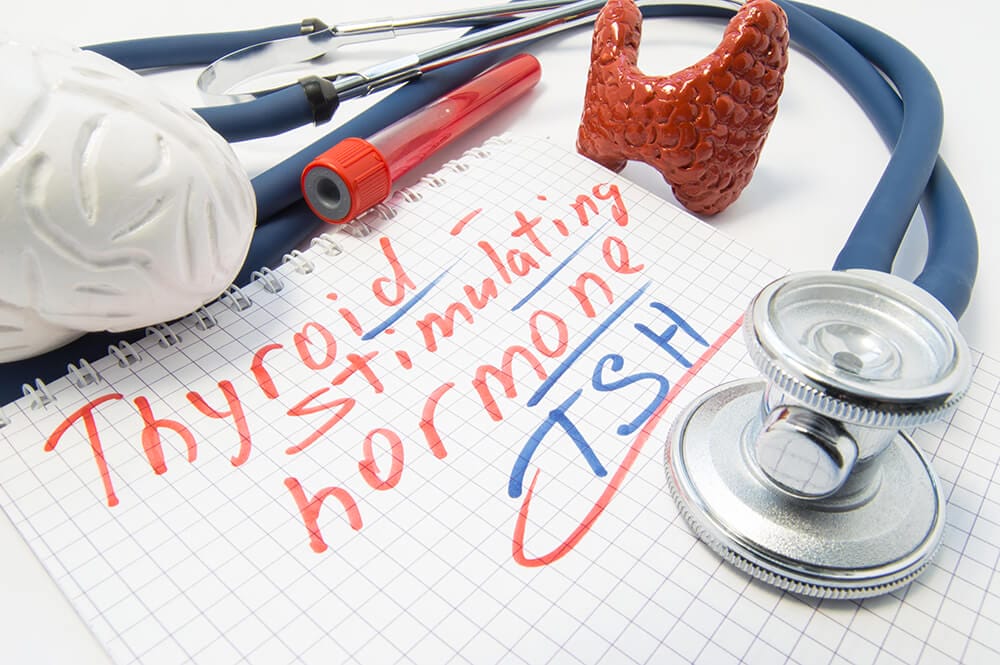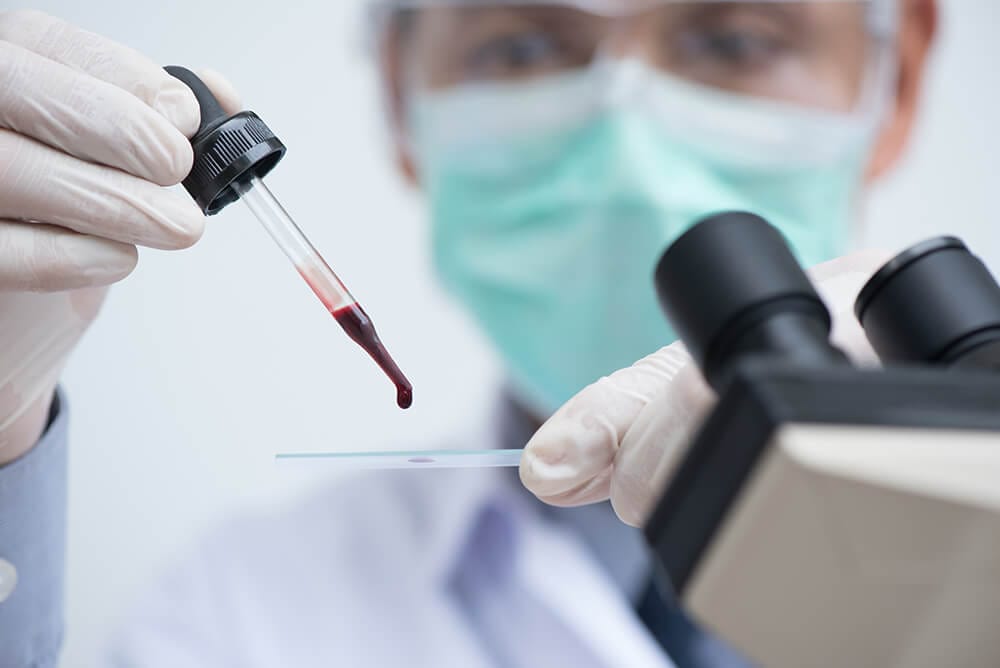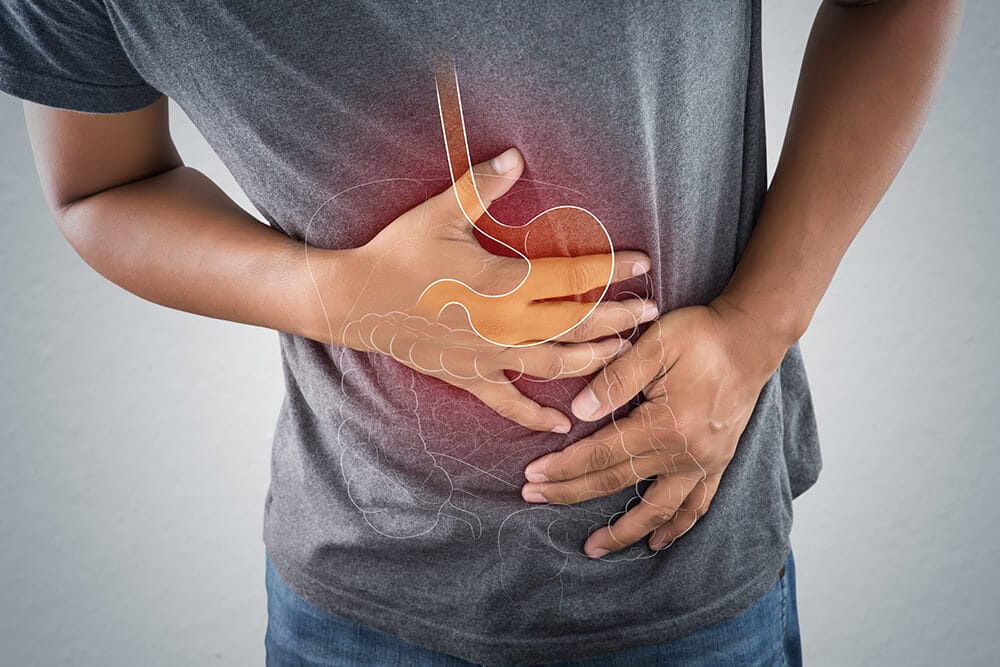
TSH Normal Levels: Meaning & How Does It Vary
Overview of TSH
Thyroid-stimulating hormone (TSH) is a glycoprotein hormone that belongs to the gonadotropin family, which includes the pituitary hormones: luteinizing hormone (LH) and follicle-stimulating hormone (FSH), as well as the placental hormone: chorionic gonadotropin (CG). Thyroid gland disorders are diagnosed with a thyroid-stimulating hormone (TSH) blood test. When the hypothalamus releases a chemical called thyrotropin-releasing hormone, TSH is created (TRH). TRH then causes TSH to be released by the pituitary gland. The thyroid gland produces two hormones in response to TSH: triiodothyronine (T3) and thyroxine (T4). T3 and T4 aid in the regulation of your body’s metabolism. T3 and T4 are required for optimal brain development, particularly during the first three years of life. In severe cases of congenital hypothyroidism, a baby’s thyroid gland does not produce enough thyroid hormone, resulting in below-average intelligence. Thyroid hormones are also required for appropriate growth and development in older children. This test can be performed at the same time as T3 and T4 testing. However, T3, T4, and TSH normal range may vary.
Factors that impact TSH levels
Genetic factors account for 45–65 percent of interindividual variability in TSH normal range levels and thyroid hormone levels, according to twin studies. Genome-wide association studies have revealed several of these genetic variations. Genes encoding proteins involved in the synthesis, metabolism, and transport of thyroid hormones; genes for proteins involved in the TSH receptor signaling cascade; genes encoding growth factors and growth factor binding proteins; genes for transcription factors and proteins involved in the development of the HPT axis; and genes for proteins with unknown functions contribute to interindividual variations in TSH and thyroid hormone levels. TSH normal range levels are influenced by a variety of factors, including smoking, alcohol consumption, BMI, food, and exposure to specific chemicals.
Normal TSH levels
Normal TSH levels range from 0.5 to 5.0 mIU/L. TSH is optimally maintained in varied ranges as recommended by an endocrinologist during pregnancy, a history of thyroid malignancy, a history of pituitary gland dysfunction, and senior age. The typical range for FT4 is 0.7 to 1.9ng/dL. Individuals on thyroid hormone-modifying medicines, as well as those with a history of thyroid cancer or pituitary dysfunction, may benefit from a different normal FT4 range.
The total T4 and total T3 levels in the blood are used to determine the amount of bound and free thyroid hormone in the body. Many factors that alter protein levels in the body, such as drugs, sex hormones, and liver illness, influence these levels.
In individuals, a normal Total T4 level ranges from 5.0 to 12.0 g/dL.
In adults, a typical Total T3 level is between 80 and 220 ng/dL.
Thyroid function is not commonly assessed with free T3 tests, since they are typically inaccurate.
High and Low TSH levels
A high TSH level indicates that your thyroid is underactive (hypothyroid) and not making enough thyroid hormone. Low TSH levels can indicate that your thyroid is producing too many hormones, a condition known as hyperthyroidism. TSH levels that are too high or too low are not explained by a TSH test. It is ideal if one has normal thyroid levels. If your test results are abnormal, your doctor will most likely order more tests to figure out what’s wrong with your thyroid. To understand what is considered a dangerously high TSH level, it is crucial to understand why high levels of TSH are problematic, to begin with. To get a better grasp on this, your healthcare provider might order the following tests and even help you understand T3, T4, TSH normal range:
-
- Tests for thyroid hormone T4.
- Thyroid hormone testing (T3).
- Tests to diagnose Graves’ disease, an autoimmune disease that causes hyperthyroidism.
- Hashimoto’s thyroiditis, an autoimmune condition that causes hypothyroidism, is diagnosed through blood tests.
TSH levels by Age
TSH levels are typically measured in milliunits per liter (mU/L) in a range of 0.45 to 4.5 milliunits per liter (mU/L).
| Age range | Normal | Low | High |
| 18–30 years | 0.5–4.1 mU/L | < 0.5 mU/L | > 4.1 mU/L |
| 31–50 years | 0.5–4.1 mU/L | < 0.5 mU/L | > 4.1 mU/L |
| 51–70 years | 0.5–4.5 mU/L | < 0.5 mU/L | > 4.5 mU/L |
| 71–90 years | 0.4–5.2 mU/L | < 0.4 mU/L | > 5.2 mU/L |
TSH levels by Sex
TSH Normal range for females and males are as follows:
| Gender | Age | Normal | Low | High |
| Male | 18-30 | 0.5-4.15 mIU/L | <0.5 mIU/L | >4.5 mIU/L |
| Male | 31-50 | 0.5-4.15 mIU/L | <0.5 mIU/L | >4.15 mIU/L |
| Male | 51-70 | 0.5-4.59 mIU/L | <0.5 mIU/L | >4.6 mIU/L |
| Male | 71-90 | 0.4-5.49 mIU/L | <0.4 mIU/L | >5.5 mIU/L |
| Female | 18-29 | 0.4-2.34 mIU/L | <0.4 mIU/L | >4.5 mIU/L |
| Female | 30-49 | 0.4-4.0 mIU/L | <0.4 mIU/L | >4.1 mIU/L |
| Female | 50-79 | 0.46-4.68 mIU/L | <0.46 mIU/L | 4.7-7.0 mIU/L |
Normal TSH levels in pregnancy
During pregnancy, it’s critical to keep an eye on your TSH levels. Miscarriage risk is increased by high TSH levels and hypothyroidism.
| Stage of pregnancy | Normal | Low | High |
| First trimester | 0.6–3.4 mU/L | < 0.6 mU/L | > 3.4 mU/L |
| Second trimester | 0.37–3.6 mU/L | < 0.3 mU/L | > 3.6 mU/L |
| Third trimester | 0.38–4.0 mU/L | < 0.3 mU/L | > 4.0 mU/L |
Normal TSH levels in children
According to a study from 2008, TSH levels in children from birth to 18 years old were shown to be dramatically varied throughout their lifetimes, according to a Trusted Source study.
TSH levels in children tend to be high for the first month after birth, but they steadily drop as they approach closer to adulthood, before rising again as they become older.
| Age range | Normal | Low | High |
| 0–4 days | 1.6–24.3 mU/L | < 1 mU/L | > 30 mU/L |
| 2–20 weeks | 0.58–5.57 mU/L | < 0.5 mU/L | > 6.0 mU/L |
| 20 weeks – 18 years | 0.55–5.31 mU/L | < 0.5 mU/L | > 6.0 mU/L |
How to measure TSH levels
A simple blood sample is taken from your body for the TSH test. After that, the blood will be tested in a lab. This test can be carried out at any time of day. There is no need to prepare anything (such as overnight fasting). You should just experience a minor prick from the needle in your arm. There may be some minor bruising.
How abnormal TSH levels can be treated
The synthetic thyroid hormone levothyroxine is used regularly as a standard treatment for hypothyroidism (Levo-T, Synthroid, others). This oral drug restores normal hormone levels, correcting hypothyroidism’s signs and symptoms. Hyperthyroidism can be treated in a variety of ways. The optimal treatment option for you is determined by your age, physical health, the underlying cause of hyperthyroidism, personal preference, and the severity of your illness. Treatment options include Radioactive iodine, Anti-thyroid medications, Beta-blockers, and Thyroidectomy.
Conclusion
TSH levels that are abnormal can suggest that your thyroid gland isn’t working properly. If you have an underlying illness that causes hypothyroidism or hyperthyroidism, it can lead to long-term consequences.
Make sure you get your TSH levels checked on a regular basis, especially if you have a family history of thyroid issues or if past test results revealed abnormal TSH levels.
To ensure that the results of a TSH test are reliable, follow any advice your doctor provides you to avoid taking specific drugs or eating certain foods before the test. This allows your doctor to provide the most appropriate medication for the reason of abnormal TSH.
FAQS
Can I drink water before TSH Test?
Yes, you can have water before your thyroid test.
How do you prepare for a TSH test?
A TSH blood test does not require any particular preparation. Other blood tests may require you to fast (not eat or drink) for a few hours before the test if your doctor has ordered them. If there are any special instructions to follow, your health care practitioner will inform you.
What is the best time of day to take a TSH blood test?
It is recommended to get this test done first thing in the morning.















